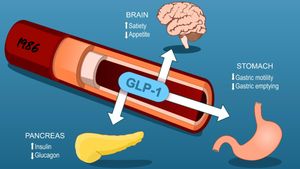On February 11, the continent unites to commemorate the European Emergency Number 112 Awareness Day, emphasizing the importance of the unified emergency number available across Europe. This day serves as a reminder of the free, accessible help the number provides, whether for medical emergencies, fire incidents, or other crises.
Deputy Prime Minister and Interior Minister Thomas Strobl expressed unwavering support for this initiative, highlighting the ease and efficiency of requesting help through these three digits. He noted, "With these three digits, one can quickly and free of charge call for assistance when facing fires, life-threatening injuries, or medical emergencies." The European emergency number is operational 24/7, underlining the collaborative effort of various services to safeguard lives.
The event also rolls out innovative alternatives for those who struggle with language, including the "nora" emergency app, SMS emergency services, and the Tess-Relay service, which provides sign language interpretation. These tools aim to eliminate communication barriers, ensuring everyone can access emergency help. Each year, over two million contacts are made via emergency hotlines within Baden-Württemberg alone, with nearly half resulting in deployments of emergency services.
Using the opportunity presented by this day, the German Red Cross (DRK) spotlighted the importance of community awareness about calling 112. Stefan Vieth, DRK’s district manager for Mettmann, emphasized the number's pan-European significance and accessibility, stating, "Many people are unaware the 112 can be used without any area code and free of charge throughout all EU countries.” He also underlined the advantage of mobile callers often being pinpointed by location, which can prove life-saving when someone is disoriented.
Through consistent education on the correct usage of 112, key guidelines are instilled. The five W's of emergency calls—where the incident is, what happened, how many people are involved, the nature of their injuries, and waiting for questions from dispatch—serve as fundamental aspects of ensuring effective communication during emergencies. "Staying calm and clearly answering these questions aids emergency responders to act swiftly and effectively, and every second counts—never hesitate to call 112 when someone is at risk," urged Vieth.
Further emphasizing the impact of this initiative, the 112 is illustrated as pivotal for lives across the continent. Established back in 1991, the number was introduced by 12 EU countries as part of their commitment to ensuring the safety and well-being of citizens. The number facilitates immediate connection to local emergency services, addressing health crises, accidents, and fires without the impediment of geographical hindrances.
The Integrated Control Center of Augsburg is one of many voices answering these emergency calls and ensures every incident is assessed effectively. It oversees emergency responses across sizeable areas and processes calls with trained professionals who can provide real-time lifesaving instructions, emphasizing the necessity of the first link—the 112. Behind the scenes, there is also the tireless effort of over 34,000 active fire department personnel across the Thuringian area who respond to emergencies.
Statistics point to the effectiveness of 112 in mobilizing aid efficiently, with over 38,000 responses executed by Thuringian fire departments alone last year, underscoring the increasing reliance on rapid response units to tackle various crises, from natural disasters to personal emergency situations.
Reflecting on the modern usage of 112, there has been noted concern over misuse for non-critical reasons, particularly as some utilize it for issues typically handled by family doctors. For example, the recent surge of calls noted during the first few months of the year highlighted the necessity to encourage clarity around when to call emergency services. The rescue services continue to reinforce the importance of differentiational awareness, urging the public to recognize when calling 112 is appropriate versus contacting 116-117, which is meant for non-life-threatening medical issues.
On the societal front, it's also been brought to light how expectant mothers residing far from medical facilities increasingly resort to calling 112 amid looming delivery dates. The erratic closure of numerous local birthing stations has resulted, prompting pregnant women from remote regions to contact rescue services to reach hospitals quicker than conventional transport methods would allow.
Taking lessons from campaigns like the European Emergency Number Day, the challenge lies not just with ensuring awareness of 112, but also equipping citizens with the knowledge on responding effectively during emergencies. It is urged across all communities to participate actively, armed with information and preparedness to utilize not only the number but also basic First Aid techniques. Reinforcing skills learned through training can make all the difference, as every emergency can turn dire, and timely action is often the decisive factor between life and death.
This annual day commemorates the lifesaving potential of simply dialing 112—a call to action for everyone across the continent to appreciate the services at their fingertips. Awareness leads to education, which cultivates preparedness, and together can save lives.



